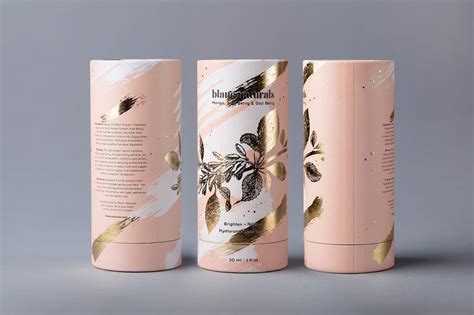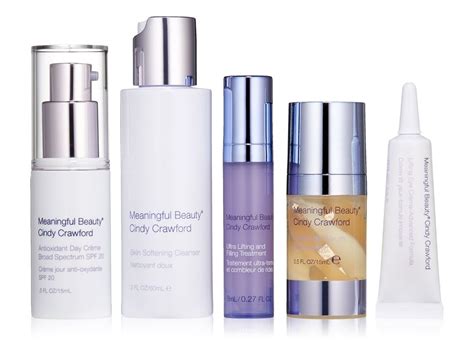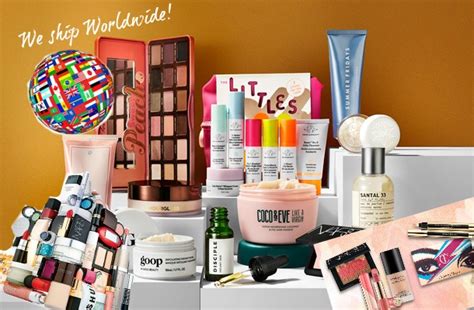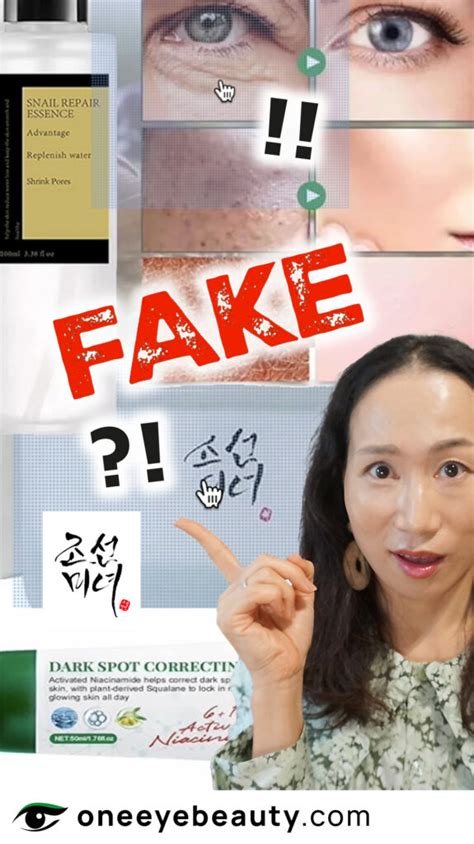How to Identify Counterfeit Beauty Products
In a world obsessed with beauty and self-care, the market for cosmetics and skincare products is booming. However, this lucrative industry has also attracted counterfeiters who prey on unsuspecting consumers, selling fake products that can be harmful to your health and wallet.
Knowing how to spot counterfeit beauty products is crucial to protect yourself from potential risks and ensure you’re getting what you pay for. This comprehensive guide will delve into various aspects of identifying fake beauty products, helping you make informed decisions and stay safe.
How Can I Tell if My Beauty Products Are Real?
One of the most common questions people ask is, «How can I tell if my beauty products are real?» While there are many subtle clues, some key indicators can help you distinguish between genuine and counterfeit products. Here are some critical areas to pay attention to:
- Packaging: Counterfeiters often use poor-quality packaging materials, misspellings, or inconsistencies in branding. Look for misaligned logos, blurry printing, or uneven edges on boxes and labels. Authentic brands typically have high-quality, intricate packaging with attention to detail.
- Barcodes: Most authentic beauty products have unique barcodes that can be scanned using a barcode reader app. If the barcode doesn’t match the product description or leads to a suspicious website, it could be a counterfeit.
- Product Consistency: Fake products may have a different color, texture, or scent compared to the genuine product. If the consistency or smell is off, it could be a sign of a counterfeit.
Remember, always exercise caution and trust your instincts. If something seems too good to be true, it probably is.

What Are the Risks of Using Counterfeit Beauty Products?
Using counterfeit beauty products poses various risks that could negatively impact your health and well-being. Here are some of the potential dangers:
- Skin Irritation and Allergies: Counterfeit products often contain harmful chemicals and ingredients that are not listed on the label. These chemicals can irritate your skin, leading to redness, itching, burning, and allergic reactions.
- Eye Infections: Counterfeit eye makeup can contain bacteria and other contaminants, increasing the risk of eye infections, such as conjunctivitis or styes.
- Long-Term Health Effects: Some counterfeit products may contain heavy metals, such as lead or mercury, which can be absorbed through the skin and have long-term health consequences.
Using counterfeit products can be a gamble with your health. Always prioritize your safety and choose reputable brands and retailers.
How Can I Avoid Buying Counterfeit Beauty Products?
Avoiding counterfeit beauty products requires a combination of awareness, research, and careful shopping habits. Here are some effective strategies:
- Purchase from Reputable Retailers: Buy from authorized retailers and official websites. Avoid purchasing from unknown sellers or dubious websites.
- Read Reviews and Customer Feedback: Check online reviews and forums for insights into the authenticity of products and sellers. Pay attention to customer experiences and complaints.
- Compare Prices: Be cautious of products offered at significantly lower prices than genuine items. Counterfeiters often lure customers with incredibly low prices.
- Check for Seller Certifications: Reputable sellers often have certifications or seals of approval that can vouch for their legitimacy.
By following these tips, you can significantly reduce the risk of purchasing counterfeit beauty products.

What Are Some Common Signs of a Counterfeit Beauty Product?
While the packaging and appearance of a product can offer clues, there are other common signs that indicate a counterfeit:
- Unusual Spelling or Grammar: Counterfeit products often have misspellings or grammatical errors on packaging and labels.
- Missing Ingredients List: Authentic beauty products always include a detailed list of ingredients. If the ingredients list is missing or incomplete, it’s a red flag.
- No Expiration Date: Most cosmetics have an expiration date. If a product doesn’t have one, it’s suspicious.
- Strange Smell or Texture: If the product has an unusual smell or texture that’s different from the genuine version, it could be a counterfeit.
Always be vigilant and pay attention to these common signs.
Can I Report Counterfeit Beauty Products?
Yes, you can report counterfeit beauty products to the relevant authorities. Here’s how:
- Contact the Brand: Many beauty brands have dedicated channels for reporting counterfeit products. Check their website or contact their customer service for instructions.
- Report to Law Enforcement: In some cases, counterfeit products may be illegal. Contact your local law enforcement agency or the National Intellectual Property Rights Coordination Center (IPR Center) to report counterfeiting activities.
- Report to Online Marketplaces: If you bought a counterfeit product online, report it to the marketplace where you purchased it (e.g., Amazon, eBay).
Reporting counterfeit products helps protect consumers and holds counterfeiters accountable.
What are the Legitimate Ways to Buy Beauty Products Online?
With the rise of online shopping, buying beauty products online can be convenient, but it’s important to be cautious. Here are legitimate ways to purchase beauty products online:
- Brand Websites: Purchase directly from the brand’s official website to ensure you are getting genuine products.
- Reputable Online Retailers: Buy from well-known and trusted retailers such as Sephora, Ulta Beauty, or Nordstrom.
- Authorized Resellers: Check if the seller is an authorized reseller of the brand you’re purchasing from.
Always look for customer reviews and testimonials to gauge the seller’s credibility.

What are Some Common Counterfeit Beauty Brands?
Counterfeiters often target popular and high-demand beauty brands. Some of the most commonly counterfeited brands include:
- MAC Cosmetics
- Kylie Cosmetics
- Fenty Beauty
- NARS Cosmetics
- Anastasia Beverly Hills
Being aware of these brands can help you be more vigilant when purchasing beauty products.
Is It Safe to Buy Beauty Products From Discount Stores?
Buying beauty products from discount stores can be tempting, but it’s important to proceed with caution. While some discount stores sell genuine products, others may offer counterfeits or products that have been tampered with.
Here are some tips for buying beauty products from discount stores:
- Check for Expiration Dates: Always look for the expiration date on the product. If it’s missing or expired, it’s best to avoid purchasing it.
- Inspect the Packaging: Examine the packaging for any signs of damage or tampering. Look for any tears, punctures, or loose seals.
- Compare Prices: If a product is significantly cheaper than what you would expect to pay, it could be a red flag.
It’s generally safer to stick with authorized retailers and reputable sellers when purchasing beauty products.
How Can I Check If My Beauty Products Are Authentic?
There are several ways to check if your beauty products are authentic:
- Contact the Brand: Contact the brand’s customer service and inquire about the product’s authenticity. They can help you verify the product’s legitimacy.
- Use a Barcode Scanner App: Scan the barcode on the product using a barcode reader app. The app can help you verify the product’s information and authenticity.
- Check for a Hologram: Some authentic beauty products have a hologram on the packaging, which can be a sign of authenticity.
- Compare with Other Authentic Products: If you have a genuine product from the same brand, compare it to the product in question. Look for any inconsistencies in packaging, color, texture, or scent.
By following these methods, you can increase your chances of determining if your beauty products are genuine.
Can I Sell Fake Beauty Products?
Selling counterfeit beauty products is illegal and unethical. It’s important to understand the legal and ethical implications of selling fake products.
Selling counterfeit products is a crime that carries significant penalties, including:
- Fines: You can face hefty fines for selling counterfeit products.
- Imprisonment: Depending on the severity of the offense, you could face imprisonment.
- Damage to Reputation: Selling counterfeit products can severely damage your reputation and make it difficult to do business in the future.
- Harm to Consumers: Selling counterfeit products can put consumers at risk of health hazards and financial loss.
It’s crucial to always operate ethically and legally in business.
What Are Some Tips for Identifying Counterfeit Beauty Products?
Here are some additional tips to help you identify counterfeit beauty products:
- Be Suspicious of Extremely Low Prices: If a product is offered at an incredibly low price, it’s a red flag. Counterfeiters often try to lure customers with unbelievably low prices.
- Look for Subtle Differences in Packaging: Counterfeiters may try to mimic authentic packaging, but there may be slight differences in the font, color, or design. Pay close attention to details.
- Check for Product Registration: Some authentic beauty products have a registration number or code that can be verified on the brand’s website.
- Use Your Senses: Counterfeit products may have a different texture, smell, or feel compared to genuine products. Use your senses to check for any inconsistencies.
- Trust Your Gut: If something seems too good to be true or you have doubts about the authenticity of a product, it’s best to err on the side of caution and avoid purchasing it.
By following these tips and being vigilant, you can reduce your risk of purchasing counterfeit beauty products.
Table Summarizing the Information:
| Aspect | Signs of Counterfeit | How to Avoid |
|---|---|---|
| Packaging | Poor quality, misspellings, inconsistent branding | Buy from authorized retailers, check for certifications |
| Barcodes | Barcode doesn’t match product description | Use barcode reader apps, compare barcodes to genuine products |
| Product Consistency | Different color, texture, or scent | Compare to genuine product, check for inconsistencies |
| Pricing | Significantly lower prices | Compare prices with other reputable retailers |
| Ingredients List | Missing or incomplete | Check for detailed ingredient lists, compare with genuine products |
| Expiration Date | Missing or expired | Look for expiration dates, avoid purchasing expired products |
Frequently Asked Questions (FAQ)
What are the legal consequences of selling counterfeit beauty products?
Selling counterfeit beauty products is illegal and carries significant penalties. You could face fines, imprisonment, and damage to your reputation. It’s crucial to always operate ethically and legally.
Where can I report counterfeit beauty products?
You can report counterfeit beauty products to the brand, law enforcement agencies, and online marketplaces where you purchased them.
What should I do if I have already bought counterfeit beauty products?
If you suspect you have purchased counterfeit beauty products, stop using them immediately. Contact the brand or retailer and report the issue. It’s best to dispose of the products safely.
Can I use counterfeit beauty products for personal use only?
Even if you plan to use counterfeit beauty products personally, it’s still not advisable. Counterfeit products can be harmful to your health, and using them is unethical. Stick to genuine and safe products.
How can I avoid buying counterfeit beauty products from discount stores?
Always check for expiration dates, inspect the packaging for damage or tampering, and compare prices with other reputable retailers. Exercise caution when purchasing from discount stores.
Are all beauty products sold online counterfeit?
No, not all beauty products sold online are counterfeit. Many reputable online retailers sell genuine products. However, it’s essential to be cautious and buy from trusted sources. Check for brand certifications, customer reviews, and seller credibility.
Is it illegal to buy counterfeit beauty products?
While buying counterfeit beauty products may not be illegal in all cases, it’s unethical and carries risks. You may be supporting illegal activities and putting your health at risk. Stick to purchasing genuine products from authorized retailers.
